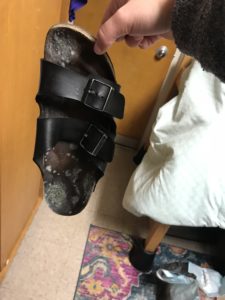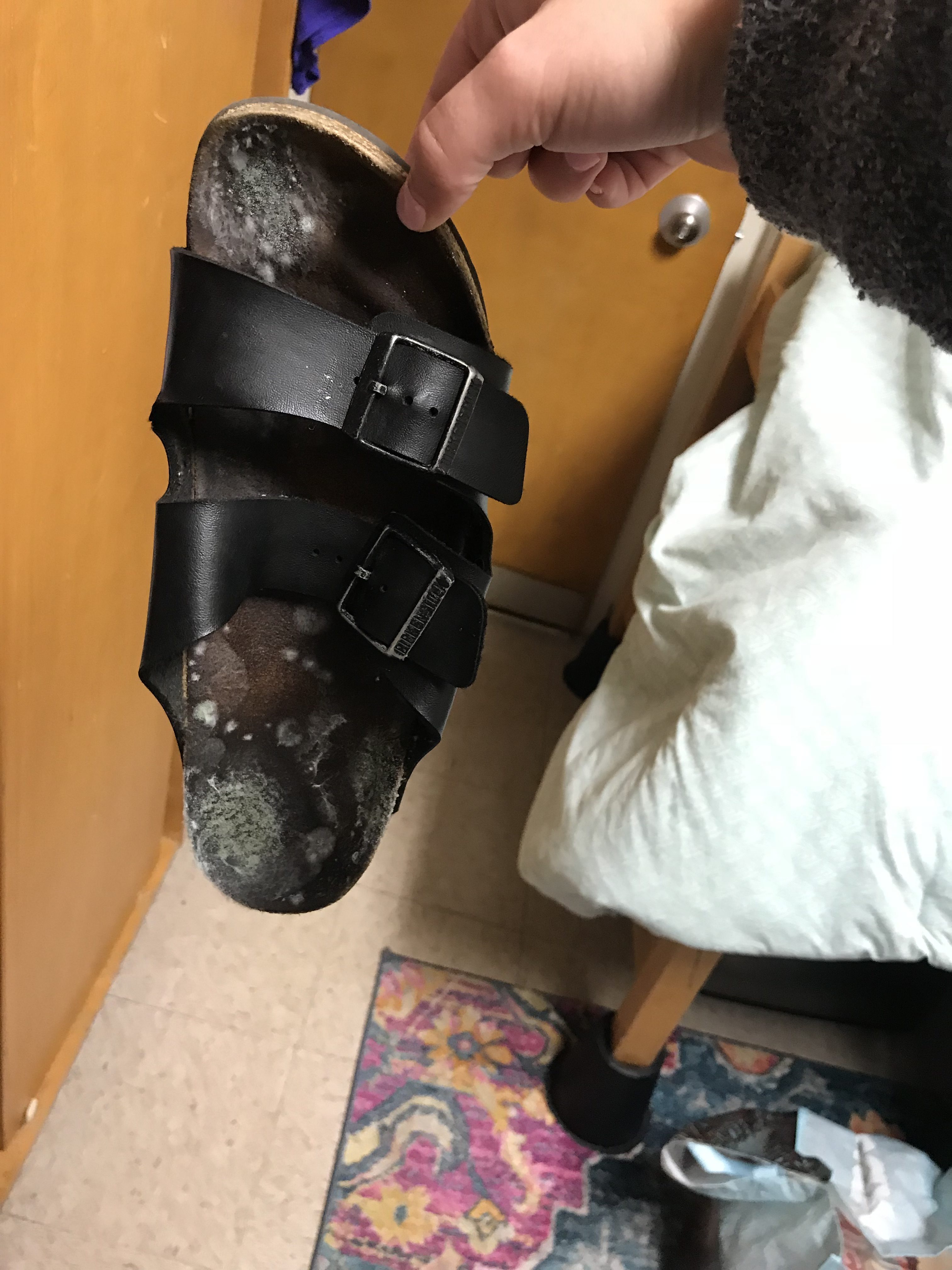Students living in Cotterman and Schaaf have found some unwanted mold growing in their rooms , and even on their belongings.
Residence and Commuter Life officials are attributing the issue to the recent humid weather. Director of Residential and Commuter Life Jon Geyer said in an email that only Cotterman and Schaaf have been affected at this time because they are the only two residence halls that have air-conditioning on campus.
“These buildings are cooled by chilled water through fan coil units with limited capabilities for adjustments,” Geyer said.
Ryanne Mitchell, a first-year economics major living in Schaaf Hall, said she and her roommate found mold under a desk drawer in their room after attending a mandatory hall meeting about the issue. They put an emergency work order in immediately.
“[Facilities] was supposed to sanitize the area and the AC unit, but my RA wiped it away with [Windex] and a paper towel,” Mitchell said. “We were told there was nothing [facilities] could do because it had already been taken care of.”
After her roommate’s parent complained, Mitchell said facilities came to sanitize the area.
“We were told it was our fault that we have mold because we kept things too close to the AC unit, but the problem area wasn’t near the unit,” Mitchell said.
Megan Carpenter, a sophomore nursing major living in Cotterman Hall, has also experienced issues with mold growing in her room; she came back to her room to find her sandal completely covered in mold.

Carpenter said she threw the sandals away because she was “way too grossed out to clean them.” Carpenter also said she believes a student that lives on a floor below her has mold growing on their mattress.
In an email sent to Cotterman and Schaaf residents, Area Director Ali Bryant informed students that the building was experiencing “a high level of moisture” due to the humidity in the air and the building’s infrastructure not being “well-suited for dehumidification.”
Students were instructed in the email to keep furniture more than two feet away from the AC unit in their room, keep their thermostats set between 68-74 degrees, to keep curtains open, and keep clothes from piling up to encourage air flow. Bryant also encouraged students to fill out a work order if they found mildew in their rooms.
“I understand that this is an undesirable issue,” Bryant said in the email. “Our facilities department is working to figure out how to combat the moisture in the air. Until then, please do your part to ensure that your room is not a good breeding place for moisture and mildew.”
Geyer confirmed in his email that the buildings’ excess moisture was due to “unusually high outdoor temperatures and humidity for longer periods of time.”
“As an example, Cotterman East side is built directly on the ground … and with extensive rain this year, additional moisture absorption came through the flooring,” Geyer said. “Additionally, in Schaaf Hall beds and beddings were being pushed up against the units restricting the air circulation. This lack of air flow caused humidity to rise.”
The CDC says on their website that some people are more sensitive to molds than others, and that “exposure to damp or moldy environments can cause a variety of health effects or none at all.”
Health effects from mold can include nasal stuffiness, throat irritation, coughing or wheezing, eye irritation, or skin irritation.
Mitchell has asthma and said she’s had trouble breathing since about a week or two after move in.
“Since we got rid of the mold, I have definitely been able to breathe better,” Mitchell said. She explained that this change in her breathing may not have been completely mold related; it may have come because facilities recently switched the campus to heating for the winter season, which means there is less moisture in the air.
According to Geyer, Facilities has installed dehumidifiers in affected common spaces, such as a lounge in Cotterman, and are monitoring temperatures, humidity and CO2 levels on a regular basis.
“We are confident that with the measures described above, we will be able to reduce or eliminate any mold/mildew issues that arise,” Geyer said. “When we return to warmer months, the University will take proactive measures to address humidity and educate students on how to be good partners in limiting moistures in residence hall rooms.”



One thought on “Mold growing in residence hall rooms”